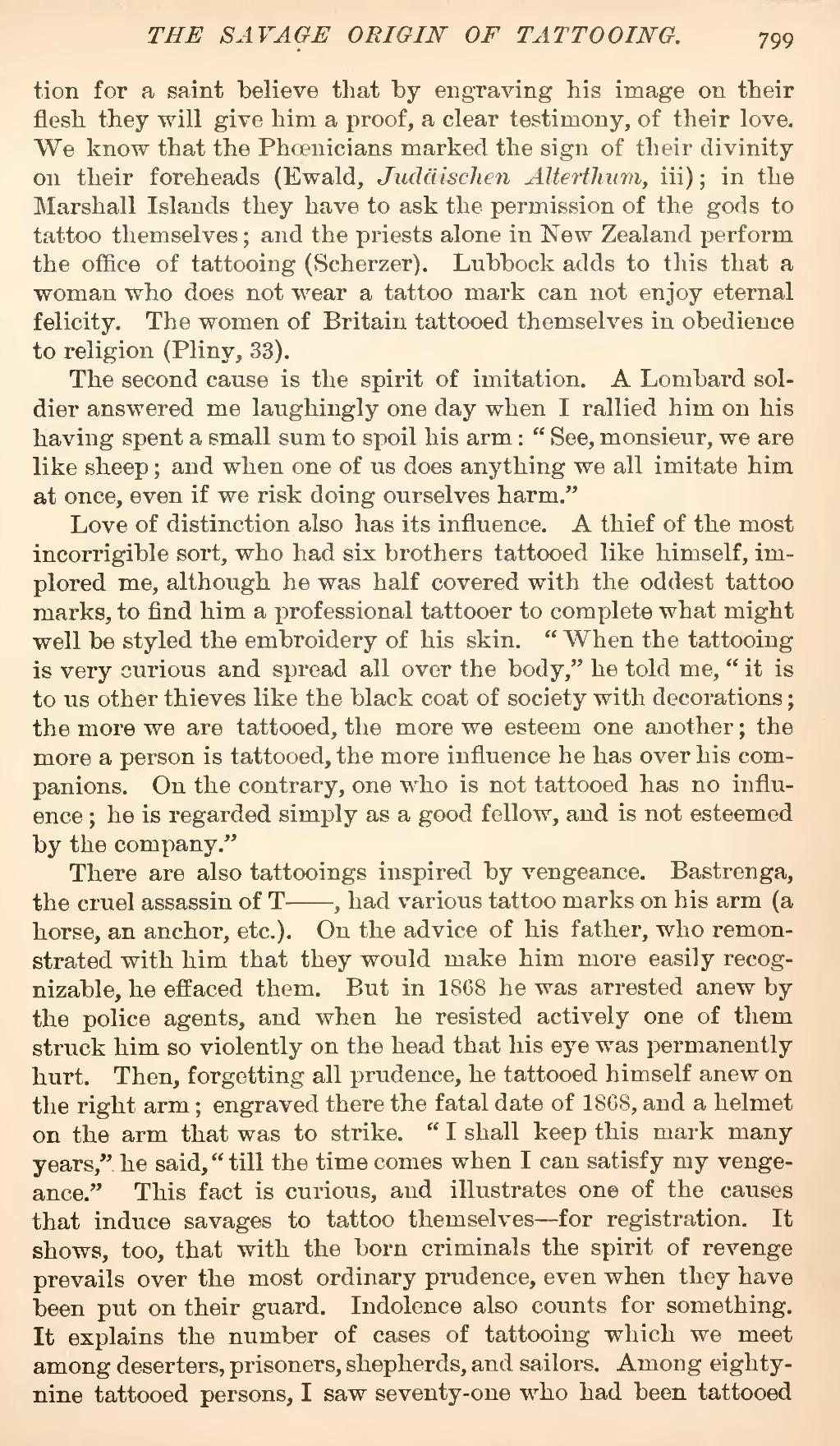tion for a saint believe that by engraving his image on their flesh they will give him a proof, a clear testimony, of their love. We know that the Phœnicians marked the sign of their divinity on their foreheads (Ewald, Judäischen Alterthum, iii); in the Marshall Islands they have to ask the permission of the gods to tattoo themselves; and the priests alone in New Zealand perform the office of tattooing (Scherzer). Lubbock adds to this that a woman who does not wear a tattoo mark can not enjoy eternal felicity. The women of Britain tattooed themselves in obedience to religion (Pliny, 33).
The second cause is the spirit of imitation. A Lombard soldier answered me laughingly one day when I rallied him on his having spent a small sum to spoil his arm: "See, monsieur, we are like sheep; and when one of us does anything we all imitate him at once, even if we risk doing ourselves harm."
Love of distinction also has its influence. A thief of the most incorrigible sort, who had six brothers tattooed like himself, implored me, although he was half covered with the oddest tattoo marks, to find him a professional tattooer to complete what might well be styled the embroidery of his skin. "When the tattooing is very curious and spread all over the body," he told me, "it is to us other thieves like the black coat of society with decorations; the more we are tattooed, the more we esteem one another; the more a person is tattooed, the more influence he has over his companions. On the contrary, one who is not tattooed has no influence; he is regarded simply as a good fellow, and is not esteemed by the company."
There are also tattooings inspired by vengeance. Bastrenga, the cruel assassin of T, had various tattoo marks on his arm (a horse, an anchor, etc.). On the advice of his father, who remonstrated with him that they would make him more easily recognizable, he effaced them. But in 1868 he was arrested anew by the police agents, and when he resisted actively one of them struck him so violently on the head that his eye was permanently hurt. Then, forgetting all prudence, he tattooed himself anew on the right arm; engraved there the fatal date of 1868, and a helmet on the arm that was to strike. "I shall keep this mark many years,", he said, "till the time comes when I can satisfy my vengeance." This fact is curious, and illustrates one of the causes that induce savages to tattoo themselves—for registration. It shows, too, that with the born criminals the spirit of revenge prevails over the most ordinary prudence, even when they have been put on their guard. Indolence also counts for something. It explains the number of cases of tattooing which we meet among deserters, prisoners, shepherds, and sailors. Among eighty-nine tattooed persons, I saw seventy-one who had been tattooed

